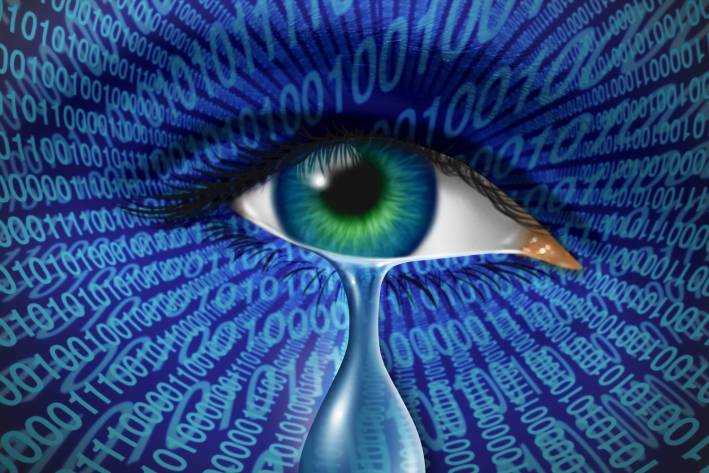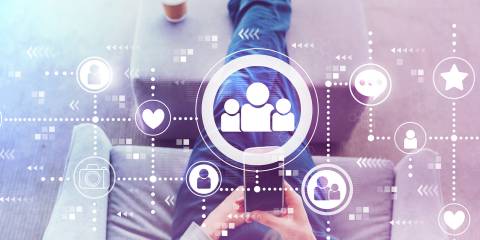Artificial intelligence (AI) has proven it can be a key player in improving mental health.
We’ve seen how AI-powered smartphone apps (such as the popular Noom) use AI algorithms to help people make behavioral changes that can lead to better weight and fitness levels.
Simon D’Alfonso, PhD, a University of Melbourne lecturer, explains that the mental health apps being developed for smartphones will yield a “digital exhaust” of data. Mental healthcare professionals can use that “exhaust” to detect and predict mental health conditions, guiding treatments to improve patient outcomes.
Data-Driven Diagnosis
How we use language (i.e., the words we choose to express our thoughts), is a barometer for human behavior and mental health.
For example, a slip of the tongue, also known as a parapraxis (first characterized by no less a mental health professional than Sigmund Freud), may reveal what the unconscious mind is thinking.
The ability to quantify such behaviors can contribute to the development of better conversational agents (chatbots) that can be used in therapeutic interventions.
Studies on Schizophrenia
Researchers at Oxford University have developed new tools based on AI language models that can better recognize the speech patterns of people with schizophrenia.
These patients tend to display small differences in speech patterns that can indicate the severity of their thinking; these patterns can be picked up more quickly and easily using AI.
Improved Efficiency
Less time spent on the mechanics of medicine means more time treating patients.
Clinicians currently using time to take notes will be freed up to spend more time with patients; medical record coding and information sharing within a healthcare team will see greater accuracy.
Public Acceptance
According to one recent study, a majority of patients feel comfortable using virtual nursing assistants for answers to routine questions about medications and for allowing their electronic health records to transmit data to their care providers.
For Diabetics
A study published by Nature Medicine, a peer-reviewed medical journal, showed that as many as 70 percent of diabetes patients are not properly dosing their insulin.
An AI tool connected via wi-fi could flag those errors for patients and their healthcare providers.
Dosing errors could be similarly reduced when treating mental health.
To understand how AI will impact mental health treatments, it’s important to understand the terminology.
Vivek Thoutam, a programmer with IT giant Cisco Systems, writing in the International Journal of Scientific Research and Technology, explains it this way:
Machine learning is a type of artificial intelligence that gives the ability for a computer to learn without being explicitly programmed, and artificial intelligence is the theory and development of computer systems able to perform tasks intelligently similar to a human. Vivek Thoutam
Research and Development
-
Universities
Along with her colleagues, Sarah Graham, a researcher at the University of California San Diego, reviewed and analyzed 28 studies that examined AI and mental health.
The studies used electronic health records, social media platforms, and mood-rating scales, among others, to predict and classify a range of mental health illnesses including depression and schizophrenia, as well as suicide ideation.
Graham’s research revealed a high accuracy in diagnoses, potentially leading to better treatment outcomes.
-
U.S. Military
Military veterans have suicide rates 1.5 times higher than the general population.
That has prompted the US Department of Veterans Affairs to develop a smartphone application to help flag veterans who exhibit behavioral patterns that may indicate an increased risk for suicide.
In 2020, the US lost about 121 people a day to suicide; 17 of those were veterans, on average.
-
International Policy
The Paris-based Organisation for Economic Co-operation and Development (OECD), a “onestop shop” for policymakers, has been delving into the potential, promises, and pitfalls of AI.
The OECD cautions that technological advancements often outpace policy developments and that AI also poses tremendous risks.
With AI rapidly becoming pervasive in our lives, it’s more important than ever to proceed thoughtfully.





